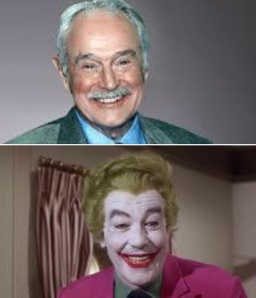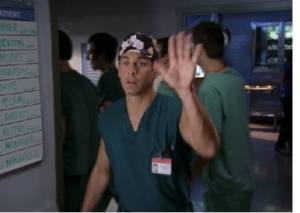According to G. Douglas Talbott, rehabilitation programs that evaluate and treat the rest of the population for substance abuse issues are incapable of doing so in doctors as they are unlike any other inhabitants of our society. Physicians are unique. Unique because of their incredibly high denial”, and this genetically inherent denial is part of what he calls the “four MDs.” Used to justify the thrice lengthier length of stay in physicians the “four-MDs” are as follows: “M-Deity”, “Massive Denial” “Militant Defensiveness” and “More Drugs.”
He states that “Impaired doctors must first acknowledge their addiction and overcome their ‘terminal uniqueness’ before they can deal with a drug or alcohol problem.”
Now some doctors are arrogant undisciplined egotists but narcissistic personalities exist in any profession and expanding traits that may apply to a small percentage of doctors to include all doctors as a universal truth contradicts reality. Applying a stereotypical paternalistic length of treatment in doctors three times as long as non-doctors to force a “one-size” fits all treatment on them has no evidence base.
 This dicto simpliciter argument can, in fact, be refuted simply by pointing it out! Sadly, no one ever did so the ASAM front-group hasbeen able to establish this caricature of the arrogant paternalistic know it all needing 3 months or more of treatment as standard of care for our profession. They did this by getting medical boards and the FSMB to accept fantasy as fact by relying on board members tendency to accept expert evidence at face value–which they always do and that is a personality characteristic that I would argue is not dicto simpliciter.
This dicto simpliciter argument can, in fact, be refuted simply by pointing it out! Sadly, no one ever did so the ASAM front-group hasbeen able to establish this caricature of the arrogant paternalistic know it all needing 3 months or more of treatment as standard of care for our profession. They did this by getting medical boards and the FSMB to accept fantasy as fact by relying on board members tendency to accept expert evidence at face value–which they always do and that is a personality characteristic that I would argue is not dicto simpliciter.Physicians are unique only insofar as the unique elements required of the profession to become and be a physician such as going to medical school and completing the required board examinations.
Any and all doctors referred to a PHP for assessment will spend at least 3 months in treatment if the facility feels it is indicated. It is inevitable. No one has challenged a patently absurd generalization that has absolutely no evidence base or plausible scientific or medical explanation. Of course those sentenced to the 3 or more months have complained but by that time they are de-legitimized and stigmatized. No one to complain to. After all, these are just redeemed altruistic non-profit good guys protecting the public and helping colleagues forge a path to salvation!
All the ASAM/FSPHP quacks have to do at that point to deflect legitimate concerns is point out the one doing the complaining is an “addict” who is “in denial” and it is part of his “disease.” The mere accusation of substance abuse is used to disregard the claims of the accused.
Authoritative opinion entrenched. Someone should have called B.S. long ago. But no one did and if they had we would not be in the current situation which is only going to go from bad to worse as the ASAM plan for universal contingency-management and urine usury unfolds-–A “golden age.” And the 4MDs Talbott attributes to doctors are all wrong. There is only one MD and it is “medical license.” On second thought that may not be entirely true. “More money” may be another. And I am not talking about a doctor’s income. I am referring to insurance and the specter of depleting home and hearth. Fiscal annihilation. Your license or your life. And the only true and plausible answer that Talbott could give to justify the lengthy stay is “Because I can biotches!” And “contingency-management” sounds better than extortion doesn’t it? And using your medical license as “leverage” sounds a helluva lot better than holding it for ransom.






[…] that doctors were a different species, separate from the rest of society, who needed special treatment three times longer than anyone else. Amazingly, this dicto simpliciter argument that can, in fact, be refuted simply by pointing it […]
LikeLike
[…] Unique because of their incredibly high denial”, and he includes this in what he calls the “Four MDs,” “M-Deity”, “Massive Denial” “Militant Defensiveness” and “More Drugs.”2 And […]
LikeLike
[…] This is just another example of authoritative opinion with no substantive value. […]
LikeLike
My thoughts on the whole system
I call The Triumverate (acute care hosp, rehab facility and PHP) run the gamut from simmering anger/hostility to, well, overt anger/hostility. The simmering phase is one of racing thoughts and that fist-in-your-sternum sensation, complete with irregular breathing (you know, -shallow and rapid with a deep sigh now and then). It’s been over a year since the falsely imposed rehab nightmare began and I still often wake up that way because justice has not been served, and, I’M JUST THE ADVOCATE! So far, no atty in the greater ***area wants to touch it, or as I crudely put it, they’re all sleeping together.
The overt speaks for itself . I’m one p-o’d victim’s advocate. Seeing him in decline and become increasingly despondent, I pulled him from the PHP regimen he never should have been in and he’s now needing to get his licence back to active status. (The PHP has the power to tell the board what should be done with ‘customers’ who leave their supervision before the mandatory 5 year commitment).
My “patient care provider” has moments of hopelessness with suicidal ideation. So far I’ve been able to “talk him down off the ledge”
I apologize if my comment is at times not coherent. My thoughts do race 2* this situation, predicament. God bless all who find themselves here with us
LikeLiked by 1 person
[…] May 1999 G. Douglas Talbott stepped down as president of the American Society of Addiction Medicine (ASAM) as a jury […]
LikeLike
Reblogged this on Disrupted Physician.
LikeLike
[…] that doctors were a different species, separate from the rest of society, who needed special treatment three times longer than anyone else. Amazingly, this dicto simpliciter argument that can, in fact, be refuted simply by pointing it […]
LikeLike
[…] don’t expect to live through this. And in a way, the PHP, Talbott and the addiction ‘experts’ with whom I have been tragically acquainted are correct…My life is worth very little. But […]
LikeLike
[…] is exactly the same system of institutional injustice seen at Ridgeview under G. Douglas Talbott. Multiple physician suicides were attributed to these […]
LikeLike
[…] Unique because of their incredibly high denial”, and he includes this in what he calls the “Four MDs,” “M-Deity”, “Massive Denial” “Militant Defensiveness” and “More Drugs.”2 And […]
LikeLike
[…] is just another example of authoritative opinion with no substantive value. It is moral entrepreneurship at its finest; the fallacy of appeal to authority and secret […]
LikeLiked by 1 person
[…] Unique because of their incredibly high denial”, and he includes this in what he calls the “Four MDs,” “M-Deity”, “Massive Denial” “Militant Defensiveness” and “More Drugs.”2 And […]
LikeLike
[…] that doctors were a different species, separate from the rest of society, who needed special treatment three times longer than anyone else. Amazingly, this dicto simpliciter argument that can, in fact, be refuted simply by pointing it […]
LikeLike
[…] Unique because of their incredibly high denial”, and he includes this in what he calls the “Four MDs,” “M-Deity”, “Massive Denial” “Militant Defensiveness” and “More Drugs.”2 And […]
LikeLike